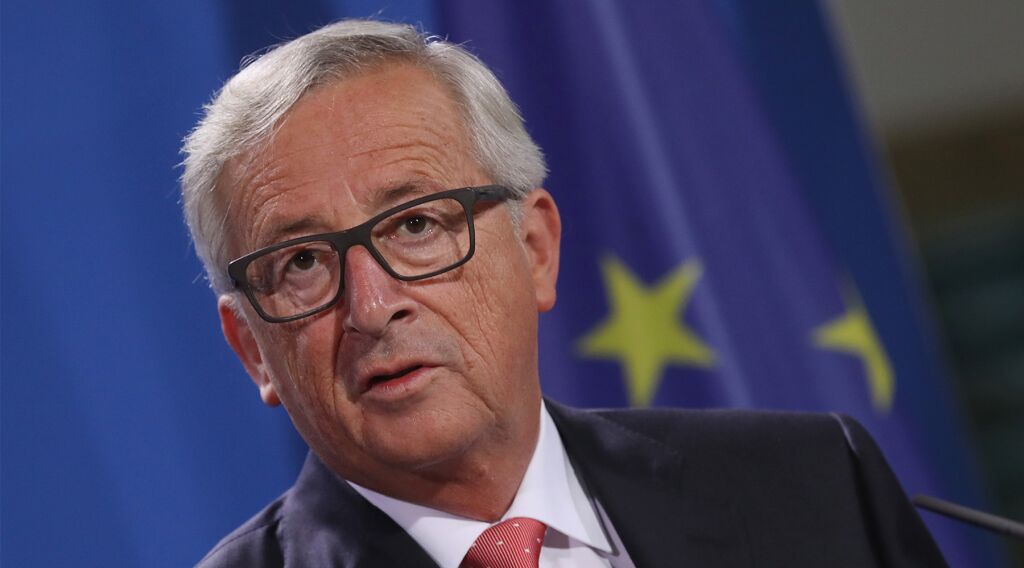
EU Unveils Plans for Big Defense Spending Boost
The European Commission announced plans on November 30 to spend $5.8 billion annually to jointly develop and acquire new military equipment.
“If Europe does not take care of its own security, nobody else will do it for us,” said European Commission President Jean-Claude Juncker. “A strong, competitive and innovative defense industrial base is what will give us strategic autonomy.”
“To guarantee our collective security, we must invest in the common development of technologies and equipment of strategic importance—from land, air, sea and space capabilities to cyber security,” he said.
The plan would see European Union leaders spending around $100 million per year on research, increasing up to half a billion dollars after 2020. EU institutions, including the Parliament, would have a say on how this money is spent.
EU members would also spend $5.8 billion on new jointly shared equipment. This money would be put up by individual nations rather than coming from the EU’s budget. Importantly, EU rules on national debt won’t apply to any money eurozone members borrow to put toward this.
The EU Observer reported, “The fund is designed to stand alongside a new military HQ in the EU foreign service and alongside battle groups—forces of about 1,000 men each—that could be parachuted into African or Middle Eastern countries.”
The New York Times reported that “Obama administration officials welcomed the increased spending.”
“It is no secret that we’ve been asking them to do this for years,” an anonymous “senior administration official” told the New York Times.
The commission argues that EU nations waste between $27 billion and $107 billion through not working together. On November 30, Robin Emmott wrote for Reuters:
An earlier Commission plan in 2003 failed to win over governments; Britain, especially, has argued that deeper EU defense integration could undermine nato. This time around, France, Germany and Italy are hoping that Britain’s decision to quit the bloc will remove a barrier to deeper cooperation.
Britain’s pending departure removes one of the biggest contributors to the EU budget, but a British diplomat said that London may seek to collaborate on defense research from outside the bloc because it sees the need for European capabilities. ”We have made clear that we are likely to want a close relationship on foreign and security policy, so it is possible,” the diplomat said.
Jyrki Katainen, one of the EU commissioners, made a similar point, saying that those “who were quite critical of EU defense cooperation have, to some extent, changed their minds.”
EU leaders will discuss the proposal in December.
All of this discussion is taking place under the shadow of President-elect Donald Trump’s promise to withdraw American influence from the world.
Munich Security Conference chairman Wolfgang Ischinger was asked by the German government to meet with Mr. Trump’s team. Upon his return from America, Ischinger told Die Welt that he hoped that the “Trump shock” would have “dramatically grown” Europe’s willingness to arm itself.
“Germany must insist on the EU becoming a global player in an insecure world,” he said. This would mean the procurement consolidation the Commission proposed this week. But Ischinger also called for a “European defense union with tightly enmeshed armed forces.”
German leaders are also thinking about the future of Europe’s nuclear arsenal. German foreign policy spokesman for the Christian Democratic and Socialist unions, Roderich Kiesewetter, called for the United Kingdom and France to provide a “nuclear umbrella” for Europe. This umbrella could be paid for “through a joint European military budget that is due to begin in 2019.” Frankfurter Allgemeine Zeitung also discussed the issue, noting that “the French and British arsenals … would be insufficient” for a “nuclear deterrence capacity”—implying that Europe needs more nukes.
The newly proposed procurement initiative is just one plan among many that EU leaders are perusing right now. There is a new seriousness behind Europe’s push for a military. For more on this trend, read our article “EU Takes Concrete Steps Toward a Military”
